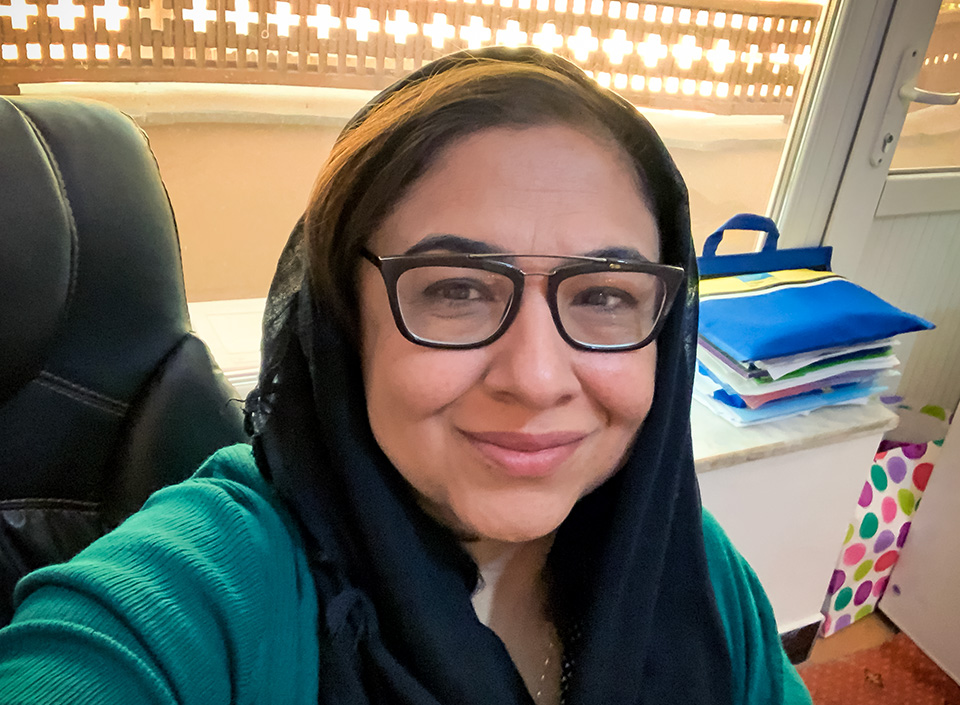In the words of Palwasha Hassan: “The time is now to transform that suffering into our strength”
Date:
Author: Nangyalai Tanai

Palwasha Hassan is a mobilizer who fought for the rights of women to be enshrined in Afghanistan’s 2004 Constitution. She is an advisor at the country’s High Peace Council (which is tasked with negotiating with elements of the Taliban), and also the Executive Director of the Afghan Women’s Educational Centre (AWEC). She has been a political and women’s rights activist since her early youth, volunteering with a women’s movement in 1995. Ms. Hassan attended the Afghanistan-Pakistan Peace Assembly in 2007 and authored a position paper for the 2010 London Conference on Afghanistan , calling for concrete measures to enforce women’s rights and strengthen their role within Afghan society. Ms. Hassan completed her post-graduate studies in Post-War Recovery from York University, United Kingdom, in 2006. Through the Afghan Women Networks (AWN)—an umbrella association for 123 women’s organizations—UN Women supports AWEC to strengthen women’s political participation in Afghanistan.

In 2006, I began hearing that the Afghan Government was thinking that war was no longer the solution. It also faced internal issues to coming up with a [peace] plan. I called a group of women who I had befriended when I returned to Kabul in 2002 after the fall of the Taliban regime. We sat at a local restaurant and discussed plans for participating in the possible peace talks. Each of us worked to invite more women into our group. As more women came forward to share their experiences, we took it upon ourselves to spread the word even farther and to strengthen our alliance. Women’s inclusion in peace processes is not just an obligation; it is a necessity.
Our small team demonstrated power during the Afghanistan-Pakistan Peace Assembly in 2007 in Kabul, where 20 women became part of these talks. As we were working in different committees, I could hear men saying: ‘women have prepared for this’, implying that men’s agendas would be challenged while outlining each committee’s recommendations.
As we were growing in numbers and strength, we came under the umbrella of the Afghan Women’s Network to [consolidate efforts to] fight the battle for gender equality. The Network has been an effective platform for us in Afghanistan to stand in solidarity with each other and advocate for lasting change.
In 2010, when the Afghan Government wanted to include only 20 women (among 1,600 men) in the Peace Jirga, we made tireless efforts to advocate and push for more women. As a result, that number increased to 320 women. While that cannot compare with the number of men participants, women could play active role. They were placed in leadership positions of all 28 different working committees (deputy heads or secretariats) where they directly influenced and included their experiences in the recommendations for peace.
We cannot be just silent observers. We have suffered a lot, and the time is now to transform that suffering into our strength. While governments may be inclined to include women in peace processes just to tick a box, for us, inclusivity means including women’s experiences and needs in the contents of peace deals and any forthcoming mechanisms.”